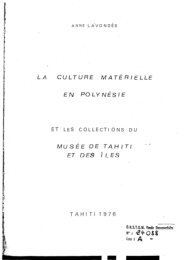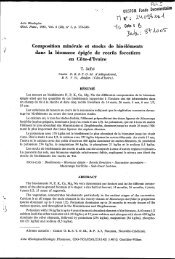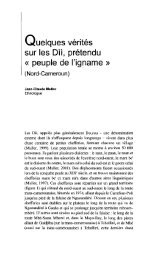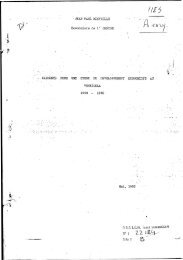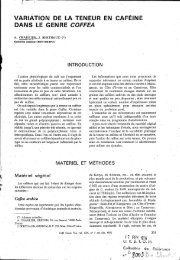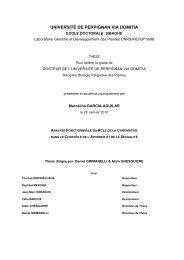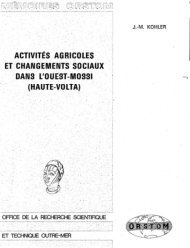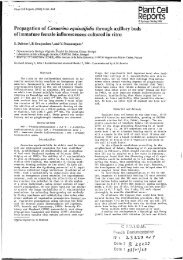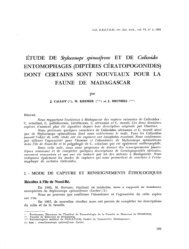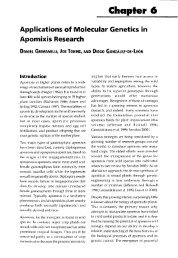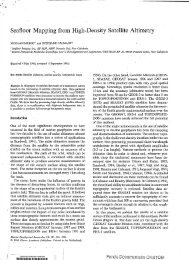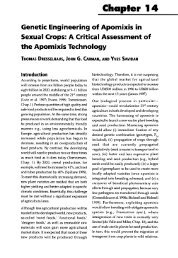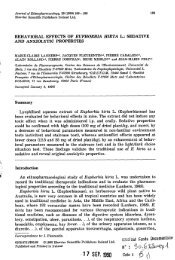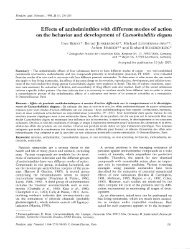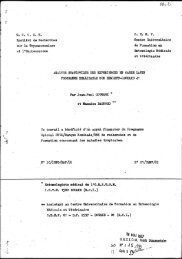A study case on coffee (Coffea arabica): Limu Coffe - IRD
A study case on coffee (Coffea arabica): Limu Coffe - IRD
A study case on coffee (Coffea arabica): Limu Coffe - IRD
Create successful ePaper yourself
Turn your PDF publications into a flip-book with our unique Google optimized e-Paper software.
Local c<strong>on</strong>sumers<br />
Illustrati<strong>on</strong> 37: Mokocha and<br />
woman trader sorting its <strong>coffee</strong><br />
(Bossolasco, August 2009)<br />
These local c<strong>on</strong>sumers are not purchasing <strong>coffee</strong> from central market; they buy it to<br />
local collectors (akhrabies, illegal sebsabies and illegal traders <strong>on</strong> local markets) or collect it<br />
<strong>on</strong> their garden/forest plot. They are groceries (shops), buna bet (bars) and dwellers.<br />
Service Cooperatives<br />
<strong>Coffe</strong>e farmers’ service cooperatives regroup many farmers’ associati<strong>on</strong>s (kebeles) and<br />
play a crucial role in finding markets for farmers. Cooperatives own or rent processing plants<br />
(pulperies/hulleries) and warehouses. Buying red or dry <strong>coffee</strong> to farmers, they process then<br />
sell it to central market, even export markets through cooperatives uni<strong>on</strong>s. In <strong>Limu</strong> Kosa<br />
woreda, there are thirteen service cooperatives dealing with <strong>coffee</strong> of which <strong>on</strong>ly two are<br />
really active: Ambuye and Babo <strong>on</strong>es that have their own pulpery and export through the<br />
Oromia <strong>Coffe</strong>e Famers Cooperative Uni<strong>on</strong>.<br />
Agricultural Service Cooperatives were established in the 1970’s by the DERG<br />
government in the framework of the enactment of the “Proclamati<strong>on</strong> to Provide for the<br />
Nati<strong>on</strong>alizati<strong>on</strong> of Rural Land No. 71/1975”. They served as a vehicle for the mass<br />
collectivisati<strong>on</strong> policy but were characterized by mismanagement. Dismantled in 1990, a lot<br />
of cooperative offices and shops got looted and destroyed. Since the 1990’s, the EPRDF<br />
government restructured the cooperative system and created the <strong>coffee</strong> cooperative uni<strong>on</strong>s<br />
(Stellmacher, 2007). These cooperatives are far from their first purpose, and now just buy the<br />
<strong>coffee</strong> from their members, process then transport it. They are in charge of processing and<br />
finding markets for farmers who just sell them their producti<strong>on</strong>.<br />
83



